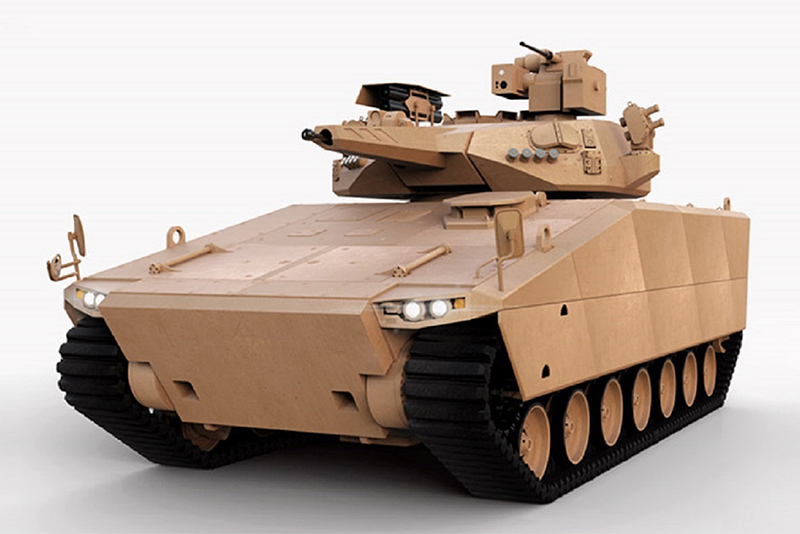South Korea’s Hanwha Defense has shipped two prototype AS21 Redback infantry fighting vehicles (IFVs) for testing by the Australian Army as part of its Project Land 400 Phase 3 procurement programme.
Test Vehicles
Hanwha Defense announced held a rollout ceremony for the two prototype vehicles at its factory in Changwon on 24 July, it announced two days earlier. The vehicles left Pyeongtaek Port on South Korea’s west coast on 28 July and are expected to arrive in Melbourne, Australia, in late August. A third prototype is expected to be delivered by November 2020.
Project Land 400 Phase 3, also known as the Mounted Close Combat Capability, aims to deliver up to 450 IFVs and 17 manoeuvre support vehicles to replace the army’s upgraded but increasingly obsolete M113AS4 armoured personnel carriers (APCs) – which first entered service in the mid-1960s – at an estimated cost between A$10 and A$15 billion.
The prototype vehicles are being delivered under a A$50 million Risk Mitigation Activity (RMA) contract signed in October 2019.
Hanwha Defense noted that RMA testing is expected to commence in November and comprise a 10-month period of operationally relevant testing that will prove out the Redback’s lethality, survivability, mobility, and transportability. One of the prototypes will be tested to destruction.
The Redback or Lynx
The AS21 Redback was shortlisted along with Rheinmetall Defence’s Lynx KF4 for the Land 400 Phase 3 programme.
In a statement, the company announced that, “The rollout is [notable because] Hanwha Defense completed the design, production, and verification of the RMA vehicles on time, despite the Covid-19 pandemic.”
The Redback – which is derived from the Republic of Korea Army’s amphibious K21 IFV – was shortlisted as a bidder for the contract alongside Rheinmetall Defence’s Lynx KF41 IFV in September 2019.
The Australian government is expected to select a preferred tenderer by 2022, with initial operating capability of the selected platform expected between 2024 and 2025.
Hanwha Defense has selected the Australian-made T2000 30 mm manned turret developed by the Canberra-based EOS Defence Systems in partnership with Israel’s Elbit Systems. The turret is understood to combine the electric drive of the Elbit MT30 MK2 30 mm unmanned weapon station and its fire control system (FCS) with EOS Defence’s sensors and user interface.
by Jr Ng











